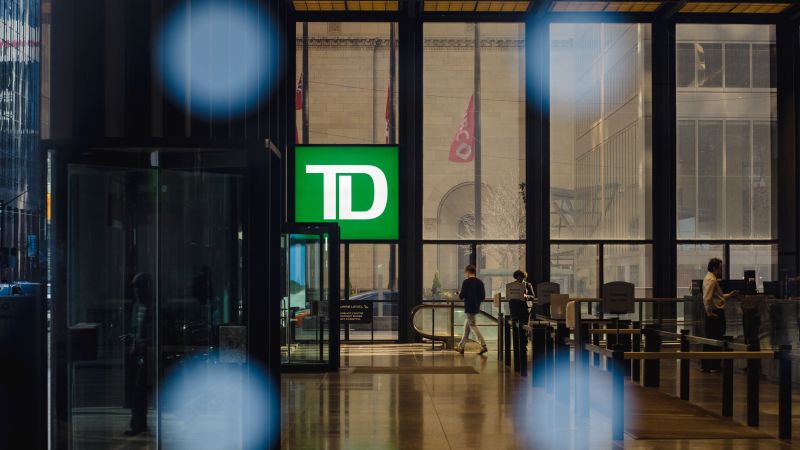
What customers are telling banks they care about in this election year
CNN
It’s been a year since the collapse of Silicon Valley Bank and the regional banking crisis that ensued. From a bird’s-eye view, not much has changed in the intervening period.
A version of this story first appeared in CNN Business’ Before the Bell newsletter. Not a subscriber? You can sign up right here. You can listen to an audio version of the newsletter by clicking the same link. It’s been a year since the collapse of Silicon Valley Bank and the US regional banking crisis that ensued. From a bird’s-eye view, not much has changed in the intervening period. Inflation has come down but interest rates remain high and economic data is still coming in strong. Fears about the health of the real estate market, and a confusing economic landscape, leave commercial banks questioning what comes next. Before the Bell spoke to Chris Giamo, head of commercial banking at TD Bank, about the health of American depositors and his overall outlook on economic growth and markets. This interview has been edited for length and clarity. Before the Bell: Employment data for February came in hotter than expected, but there was some weakness in wage growth and December and January numbers were both revised lower. Wall Street had a mixed reaction. But what does it mean for banks?

If paying $1,000 for a new iPhone already sounded expensive, consumers should brace for even greater sticker shock later this year. President Donald Trump’s tariffs on foreign goods – specifically those sourced from China – are expected to heighten the prices of everyday tech products, from iPhones to laptops, cars and even smaller gadgets like headphones and computer mice.

The US stock market, fresh off its third-best day in modern history, is sinking back into reality: Although President Donald Trump paused most of his “reciprocal” tariffs, his other massive import taxes have already inflicted significant damage, and the economy won’t easily recover from the fallout.

The US stock market, fresh off its third-best day in modern history, is sinking back into reality: Although President Donald Trump paused most of his “reciprocal” tariffs, his other massive import taxes have already inflicted significant damage, and the economy won’t easily recover from the fallout.

 Run 3 Space | Play Space Running Game
Run 3 Space | Play Space Running Game Traffic Jam 3D | Online Racing Game
Traffic Jam 3D | Online Racing Game Duck Hunt | Play Old Classic Game
Duck Hunt | Play Old Classic Game








